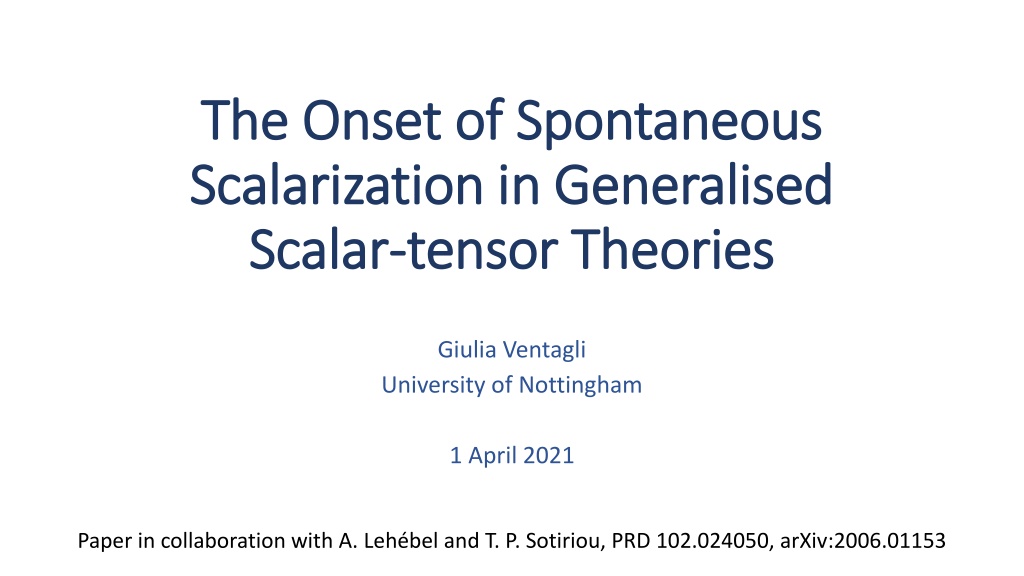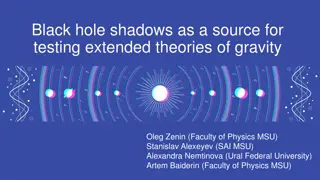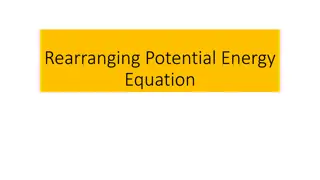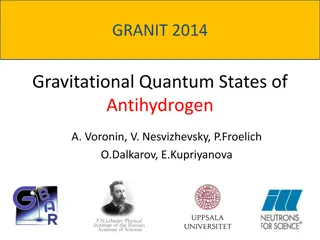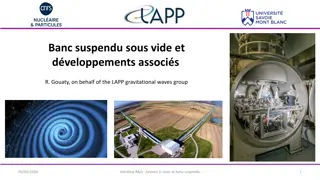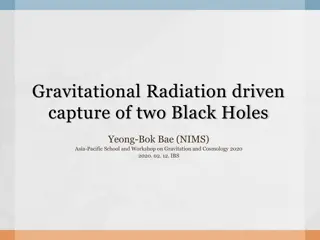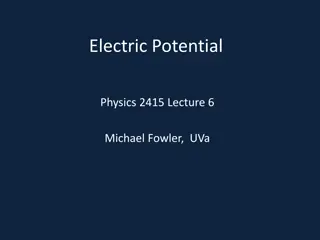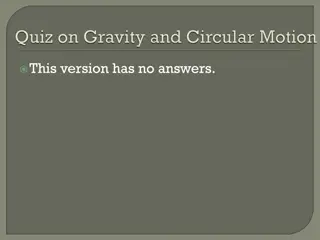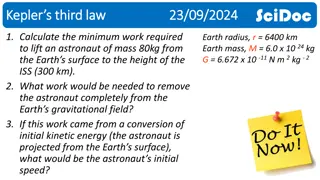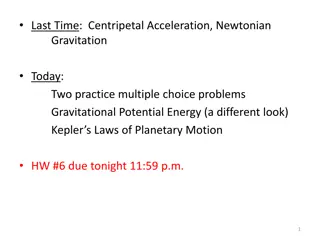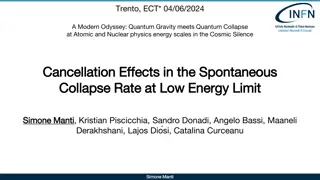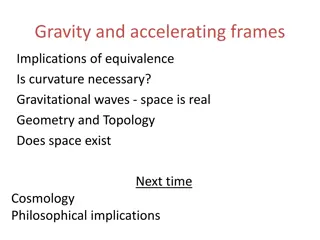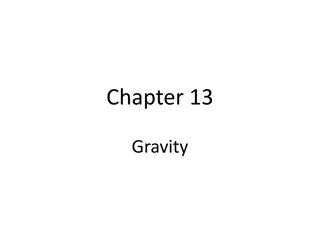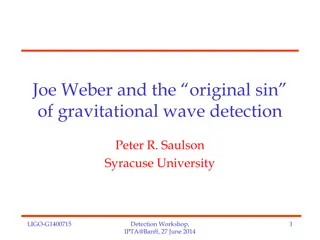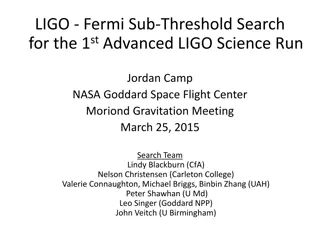Understanding Spontaneous Scalarization in Gravitational Theories
Spontaneous scalarization presents a unique phenomenon where compact objects experience field growth triggered by tachyonic instability, leading to stable field configurations. Explored in various theories, such as Horndeski gravity and scalar Gauss-Bonnet gravity, spontaneous scalarization is studied in the context of neutron stars and black holes, shedding light on fundamental aspects of scalar-tensor theories.
Download Presentation

Please find below an Image/Link to download the presentation.
The content on the website is provided AS IS for your information and personal use only. It may not be sold, licensed, or shared on other websites without obtaining consent from the author. Download presentation by click this link. If you encounter any issues during the download, it is possible that the publisher has removed the file from their server.
E N D
Presentation Transcript
The Onset of Spontaneous The Onset of Spontaneous Scalarization in Generalised Scalarization in Generalised Scalar Scalar- -tensor Theories tensor Theories Giulia Ventagli University of Nottingham 1 April 2021 Paper in collaboration with A. Leh bel and T. P. Sotiriou, PRD 102.024050, arXiv:2006.01153
Spontaneous Scalarization Spontaneous Scalarization Spontaneous growth of fields around compact objects Triggered by a linear tachyonic instability Instability quenched by nonlinearities of the system Stable configuration of the field around a compact object
NS Spontaneous scalarization NS Spontaneous scalarization Damour and Esposito-Farese 93 First proposed by Damour and Esposito-Farese 93 Linear tachyonic instability around a GR neutron star configuration
Silva et al. 2018 Doneva et al. 2018 Antoniou et al. 2018 BH Spontaneous scalarization BH Spontaneous scalarization Similar mechanism studied in scalar Gauss-Bonnet gravity Spontaneous scalarization for both neutron stars and black holes For tachyonic instability
Horndeski 1974 Kobayashi et al. 2011 Horndeski gravity Horndeski gravity Most general action with a scalar field and second order field equations where with
Andreou, Franchini, Sotiriou and GV 19 Minimal action Minimal action Minimal action containing all terms that trigger tachyonic instability with
Setup Setup Focus on NS Static and spherically symmetric background spacetime (TOV eqs.) Scalar perturbation decomposed in spherical harmonics and Boundary condition
Changing the effective mass Changing the effective mass Sly EOS Central energy density s.t.
Equations of state Equations of state MPA1 EOS Central energy density s.t.
Effect of the bare scalar mass Effect of the bare scalar mass Sly EOS Central energy density s.t. Additional scalar mass
Mass of the star Mass of the star Sly EOS Central energy density s.t.
Conclusion Conclusion Analysis of scalarization threshold with more than one coupling Small bare mass stabilizes GR solutions Threshold only mildly sensitive to choice of EOS Positive Ricci coupling can also lead to scalarization
Future works Future works Solve the full system of field equations for BH and NS Study existence of scalarized solutions (ongoing) Stability
Thank you Thank you
Suppressing the instability Suppressing the instability Process completed by considering nonlinearities of the system If they are strong enough, they can suppress the instability
Ricci scalar Ricci scalar
Hyperbolicity Hyperbolicity Contribution from to effective metric Bound on to have hyperbolicity of the equation Sly EOS
Effects of Effects of
